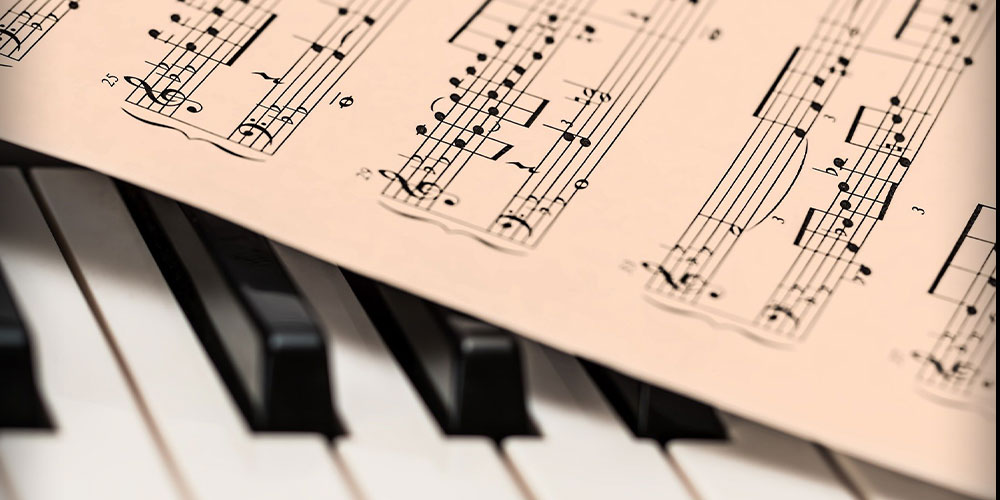Contents
- What are graded music exams?
- Should my child take graded music exams?
- Graded music exams can be an excellent choice for students
Many children have an extracurricular hobby that excites them. For some, it’s sport or dance, and for some, it’s music. Whether your child loves to rock out on the guitar, channel their inner Beethoven on the ivory keys, or keep it jazzy with the saxophone, studying music can be very fulfilling.
While practising for the sake of enjoyment is excellent, some students thrive off structure and may even have ambitions of turning their hobby into a profession. If your child wants to go deeper into their music practice, taking graded music exams is the ideal next step. Unsure if that applies to your kid? Read on to learn more.
What are graded music exams?
Graded music exams assess a student’s understanding of music theory and their ability to perform their instrument. They are also used to test readiness to move onto more advanced musical study, including university.
Who administers graded music exams?
Some boards administer graded music exams. These include the Associated Board of the Royal Schools of Music (ABRSM), London College of Music, RSL Awards, Trinity College London, and the Music Teachers’ Board. Ofqual approves all these examination boards. Which is the best music exam board? We recommend your child take the exam their teacher knows the best.
How are graded music exams structured?
Regardless of the examination board your child tests with, graded music exams have a consistent format:
- The exam includes a written test assessing your child’s understanding of music theory.
- Then, there will be a practical exam, where the student performs in front of a qualified examiner. This performance will test your child’s ability to read music, as well as their ability to play their instrument (or sing).
How many grades are there in a music exam?
All music exams are graded from 1-8. Grade 1 is entry-level, and grade 8 is required to enter higher study in a music college. Exams are pass/fail, and students who score highly can receive merit or distinction, depending on their specific score.
Can you skip music grades?
Yes! It’s not like “regular” school–no grade is mandatory. Some students enjoy following a syllabus and progressing to the prescribed level, but some may find the rigidity overwhelming. It’s entirely up to your student.
How do students take graded music exams?
If your child has been taking music lessons at their regular school or with an independent music school, that institution likely works with a specific examination board. The school will help your child register and prepare for their music exam. All exams cost a fee, which may be included in your music school tuition.
If your child has been receiving lessons from a private tutor, they can still take any graded music exam. However, your student will have to register independently. Your child’s music teacher has likely taken exams themself and can provide further insight.
Can you do music grades online?
Yes! Trinity College London, RSL Awards, and Music Teachers Board all offer digital versions of both parts of graded music exams: theory and practical. The London College of Music and ABRSM provide online versions of music theory exams, but students must still take practice exams in person.
Should my child take graded music exams?
Are graded music exams important? If music is a big part of your child’s education, the answer is definitely, “yes!” Graded music exams may seem complicated and overwhelming! Graded music exams are not obligatory but can be advantageous for many reasons.
Graded music exams are excellent motivation tools
Music exams can be a great motivation tool for students. Even if your child eats, sleeps, and breathes piano, there will still be moments when they don’t want to practice! Having an exam to work towards helps students stay focused.
If your child has been agonizing over perfectly performing a certain piece, knowing that there’s a set date they can stop can help the task feel less overwhelming. In addition, for students who work well under pressure and enjoy competition (even with themselves), graded music exams can be that extra push they need towards excelling at their music. And of course, getting high marks on an exam is a great feeling of accomplishment for any student!
Life includes many experiences that require performance under pressure, and graded music exams can help students develop the confidence to thrive in those conditions. Conversely, graded music exams can be daunting for students who struggle with test or performance anxiety. However, they can be an excellent opportunity to grow and become more comfortable in these situations.
Graded music exams are essential for students who wish to pursue music at university
For students who wish to take GCSE or A-level music, graded music exams are excellent preparation for those qualifications. While no graded music exam is equivalent to a GCSE or A-level, students who perform well on graded music exams are likely to do well on other music tests.
In addition, passing the upper-levels of graded music exams can award a student UCAS points. These points, also called tariffs, are a way for universities to calculate the achievement of prospective students. Not all universities use UCAS tariffs in the assessment process, but passing the upper-level graded music exams is essential for students applying to study music at university. Earning merit or distinction on exams can also demonstrate a student’s aptitude for their instrument, which can increase their chances of admission.
Graded music exams can be an excellent choice for students
If your child is passionate about their instrument and has a natural talent for performing, graded music exams can help them advance in their study. For students who wish to pursue music professionally, these exams are essential for access to the best programs and schools to take their studies to the next level.
That said, graded music exams aren’t for every child. If your kid simply loves to express himself or herself through music and enjoys practising on their timeline, that’s great too! Music is all about creativity and individuality, and playing just for fun is a worthy pursuit, too.









